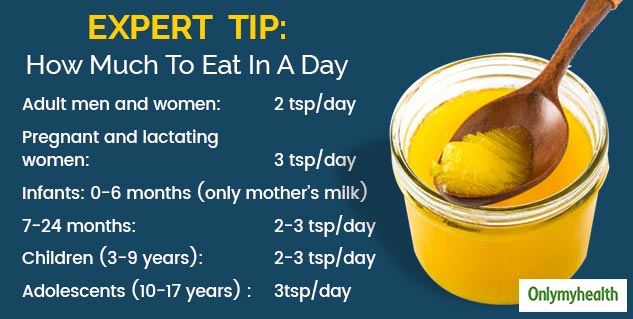
When it comes to ghee, the clarified butter that’s a staple in many cuisines, especially in Indian cooking, has long been celebrated for its rich flavour and numerous health benefits. However, in recent years, there has been growing buzz around A2 ghee—a specific type of ghee made from the milk of cows that produce A2 beta-casein protein, in contrast to regular ghee made from A1 milk. But is A2 ghee really more effective than regular ghee in terms of health benefits?
Table of Content:-
We asked our expert Dr Shrey Kumar Srivastav, Senior Consultant, Sharda Hospital - Noida, this question and he explained in depth. Here’s what you should know too before spending more than twice the amount on A2 ghee.
The Key Difference: A1 vs. A2 Milk
The main distinction between A2 ghee and regular ghee lies in the type of cow’s milk used to make the butter. Most dairy cows today produce milk that contains a protein known as A1 beta-casein. However, certain breeds, such as the indigenous Gir, Sahiwal, and others, produce milk containing A2 beta-casein. This A2 protein is believed to be easier to digest and less likely to cause inflammation compared to A1 beta-casein.

A1 milk is more common in commercial dairy production, while A2 milk comes from cows specifically bred or identified to produce this form of protein. When ghee is made from A2 milk, it is referred to as A2 ghee.
Also Read: From Ghee To Honey, Here Are The Winter Skincare Secrets Our Grandmoms Swore By
A2 Ghee: Is It Really More Effective?
While both A2 and regular ghee share similar nutritional profiles, some proponents of A2 ghee claim that it offers additional health benefits, especially for individuals with digestive sensitivities. The reasoning behind this lies in the differences between A1 and A2 beta-casein proteins. The claimed benefits include:
1. Easier Digestion
Many people find A1 milk difficult to digest, with some reporting symptoms such as bloating, gas, and even skin conditions like acne. This is due to the type of beta-casein in A1 milk, which can be harder for the body to break down. A2 milk, on the other hand, is thought to be gentler on the digestive system, leading to fewer digestive issues. Because ghee retains the proteins from milk (in a very minimal form), A2 ghee may be easier to digest than regular ghee for some individuals.

2. Reduced Inflammation
Some studies suggest that A1 beta-casein may promote inflammation in the gut and contribute to autoimmune conditions. While more research is needed, it’s possible that A2 ghee, made from A2 milk, could have a less inflammatory effect on the body. For individuals sensitive to dairy, A2 ghee may be the better choice.
3. Better For Sensitive Individuals
Those with sensitivities to dairy proteins—especially casein—may find that A2 ghee offers a more tolerable option, as it does not contain A1 beta-casein. This can be particularly beneficial for people with conditions like IBS (Irritable Bowel Syndrome) or chronic digestive issues.
4. Potential Impact on Heart Health
Some proponents of A2 milk suggest that it may have a more favourable impact on cholesterol levels and heart health compared to A1 milk. However, studies on this topic are still in their early stages, and more clinical trials are needed to confirm these claims. Regardless, ghee itself, especially when consumed in moderation, is heart-healthy due to its beneficial fat profile.
Also Read: 'Pookie Baba' Anniruddhacharya Claims Hot Water With Ghee Helps In Regularising Periods — Does It?
Verdict: Is A2 Ghee More Effective?
While A2 ghee does offer potential advantages in terms of digestibility and reduced inflammation, particularly for individuals sensitive to A1 milk, the health benefits of both A1 and A2 ghee are substantial and fairly comparable. Both forms of ghee are rich in nutrients, healthy fats, and beneficial compounds like butyrate, which contribute to improved gut health and overall wellness.
If you have no issues with digestion and don’t experience discomfort after consuming regular ghee, there’s no need to switch to A2 ghee. However, if you’ve noticed digestive or inflammatory issues after consuming regular ghee or dairy products, A2 ghee may be a worthwhile option to try.
Conclusion
A2 ghee may be particularly beneficial for individuals who are sensitive to A1 milk or looking for a more easily digestible version of ghee. For the general population, both types of ghee are excellent choices for improving overall health when used in moderation as part of a balanced diet.
Also watch this video
How we keep this article up to date:
We work with experts and keep a close eye on the latest in health and wellness. Whenever there is a new research or helpful information, we update our articles with accurate and useful advice.
Current Version
